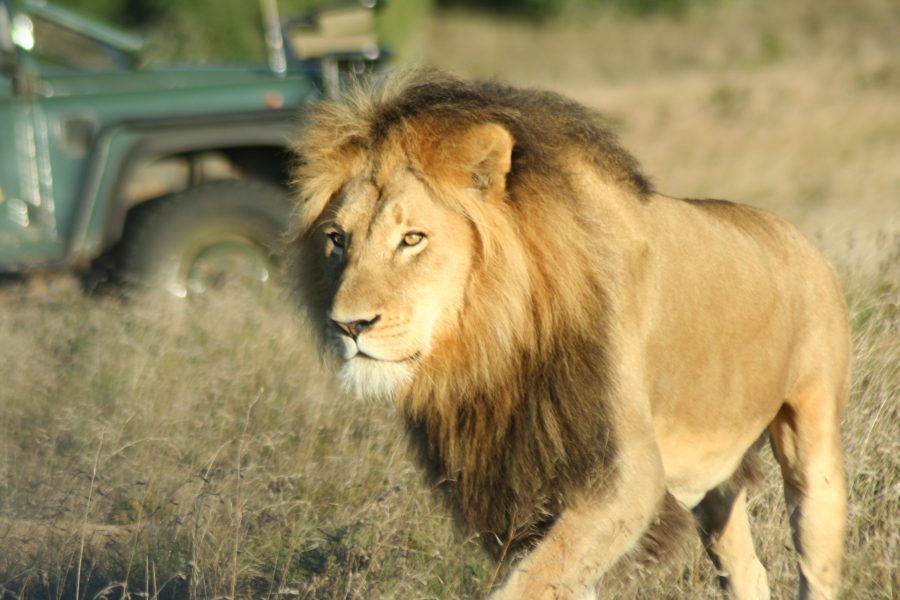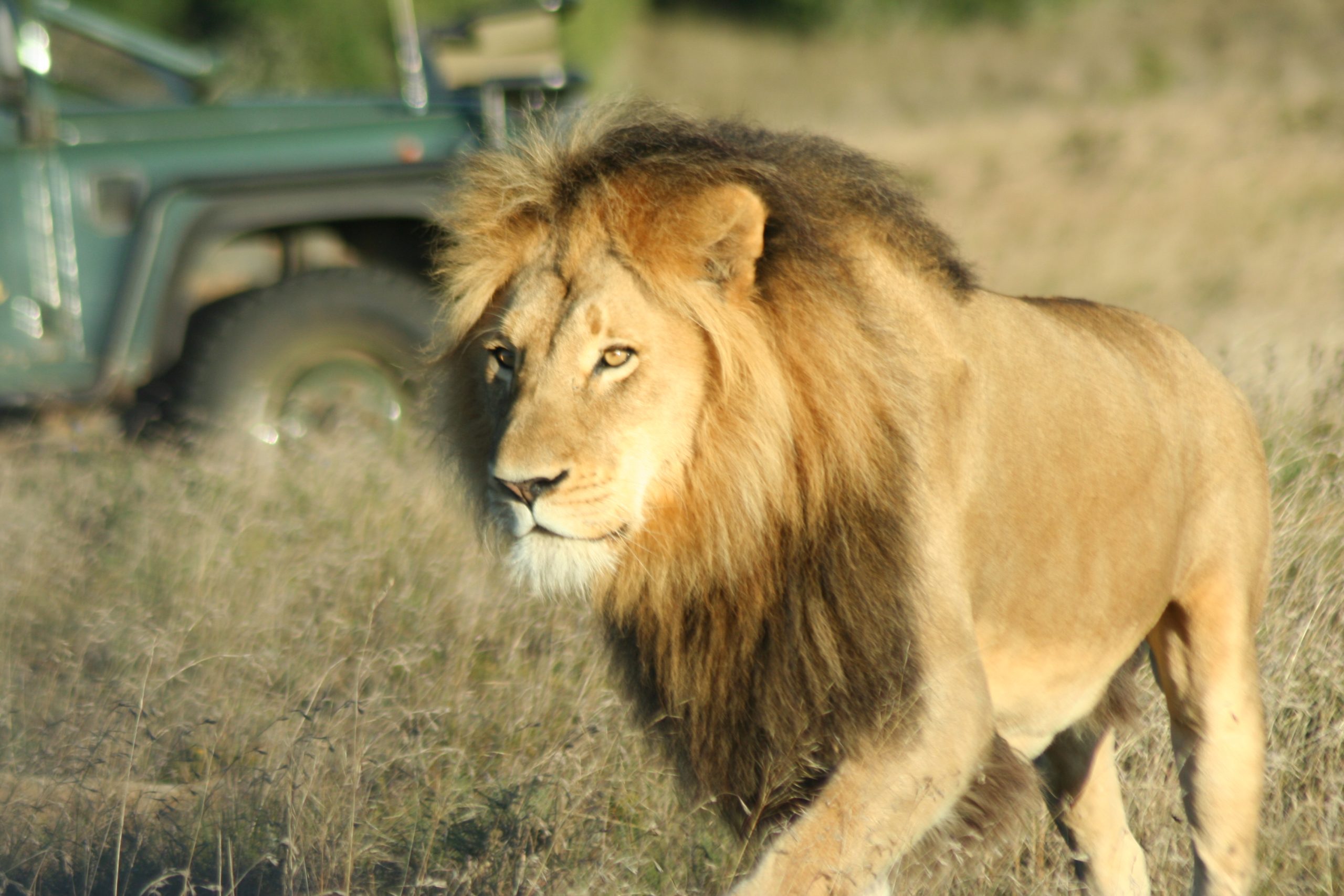
Conservation Leaders Urge UN World Tourism Organisation: Curb Wildlife Exploitation
Conservation groups from South Africa and around the globe have called on the United Nations World Tourism Organisation (UNWTO) and their Global Tourism Crisis Committee to phase out close-contact wildlife encounters and entertainment practices in tourism to help build a more resilient and sustainable industry going forward…. writes environmental writer Louzel Lombard Steyn. This as […]

Conservation groups from South Africa and around the globe have called on the United Nations World Tourism Organisation (UNWTO) and their Global Tourism Crisis Committee to phase out close-contact wildlife encounters and entertainment practices in tourism to help build a more resilient and sustainable industry going forward…. writes environmental writer Louzel Lombard Steyn.

This as the world continues to navigate the aftermath of the emergence of a novel zoonotic disease. It is believed that COVID-19 originated at a wildlife market in Wuhan, China, where it was transmitted from bats to endangered pangolins and then to humans. It’s not the first time such a human-wildlife transmission has occurred and, as experts predict, it won’t be the last.
As a country dependent on tourism for economic stability and employment, South Africa’s tourism industry simply won’t survive another catastrophic zoonotic disease spill-over.
To this end, a group of nearly 240 international organisations, including 13 from South Africa, have called on the UNWTO’s Global Tourism Crisis Committee partners to rethink wildlife entertainment in tourism going forward.
Travel and tourism heavyweights such as Airbnb, booking.com, the Dutch association of travel agents and tour operators ANVR, Intrepid Travel, as well as the Southern Africa Tourism Services Association (SATSA), have all backed the open letter sent by the World Animal Protection (WAP) on the 28th May.
The letter asks for a pro-active, precautionary and responsible approach in ‘preparing for tomorrow’ by phasing out the use of captive wildlife for tourist entertainment. The proposal hopes to safeguard both tourists and tourism employees while shaping an authentic and ethical industry.
A new wave of wildlife tourism
Wildlife interactions are an integrated part of tourism, accounting for up to 20-40% of international tourism globally. However, as the letter states, the industry is also a reservoir for new zoonotic diseases and relies on keeping wild animals in closely confined spaces to be handled, fed, posed with, walked with, ridden or watched as they perform. Often, the animals involved also suffer due to poor welfare conditions, which undermines their immune systems and accelerates disease emergence and spread.

While the era of circuses and zoos seems to be losing traction, a new, more nuanced wave of exploitation continues in the online realm, where ‘wildlife fame’ is on the rise.
Between 2014 and 2017, the number of wildlife selfies posted on Instagram increased by 292%. More than 40% of these involved hugging, holding or close-contact interactions with wild animals. Apart from the immediate dangers, such as losing an arm or being mauled to death, “the risk of transmitting potential zoonosis must be considered a significant Public Health risk,” says Nick Stewart, Global Head of Wildlife Campaigns for WAP.
Particularly concerning is how many of these interaction facilities and individuals operate under the cloak of ‘wildlife rescue operations’ or ‘rehabilitation centres’, to woo tourists, fans and volunteers. The recent Netflix hit-series Tiger King is but one example and in South Africa, there are many ‘Joe Exotics’ keeping wildlife in captivity in the name of ‘education’, ‘raising awareness’ and ‘conservation’.

In reality, the practice romanticises close physical contact with wildlife and jeopardises all ethical and well-being regulations aimed at keeping humans and wildlife safe.
According to Blood Lions director Pippa Hankinson, faux-conservation tactics pose a great challenge to creating a tourism industry which is genuinely sustainable and safe. Blood Lions is one of the co-signatories of the UNWTO joint letter.
The current pause in the global tourism industry creates an opportunity to take a step back and implement rational measures to avoid all of the above. “Decisive action would signal the tourism sector’s commitment to not only recover, but to build back better to protect the health of tourists and tourism workers globally,” Stewart says.
Tomorrow’s Tourism
SATSA have already started to address some of these issues with their Animal Interaction Charter, encouraging facilities to do away with interactions, breeding and trading. According to Keira Powers, SATSA Responsible Tourism Committee Chair, they aim to be on the right side of history.
“Wildlife remains the bedrock of South Africa’s tourism, and we have the privileged position of offering tourists engagements in authentic settings. A UNWTO-led tourism recovery plan with strong, ethical recommendations around captive wildlife will bolster local tourism authorities’ efforts to create a more sustainable, ethical and responsible tourism industry around the globe”, Powers says.
Cape Town’s official destination marketing organisation Cape Town Tourism already opposes all human-wildlife interactions. However, says mayoral committee member for economic opportunities and tourism in Cape Town James Vos, it is out of their hands to stop such facilities from operating. “It’s clear that cub petting and other wildlife entertainment practices will continue, despite their controversy, unless they are banned for good.”
There has never been a bigger need or better grounds for such drastic action; to proactively minimise the risk of future pandemics, to protect the health of tourists and tourism workers and to secure the tourism industry’s future sustainability.
“We need to ask the question however why we are still having this debate”, Hankinson says. “More than three years ago, CEO of South African Tourism, Sisa Ntshona, stated publicly that SA Tourism does not promote or endorse any interaction with wild animals such as the petting of wild cats, interacting with elephants and walking with lions, cheetahs and so on, but nothing concrete has changed since.”
In South Africa, wildlife interactions and entertainment in tourism remains a sticky inter-departmental web over which our national Tourism Department has limited authority, even though they support SATSA’s long-term vision regarding wildlife interactions in tourism, says spokesperson Blessing Manale.
The Department is not the regulatory authority and cannot simply ban wildlife interactions in tourism, he says. “That function remains public health or environmental management matter, with the relevant authorities being the Departments of Health and Environment, Forestry and Fisheries.”
He says the Department continues to work with industry partners to strengthen efforts in support of sustainable and ethical tourism practices wherever they are able. Tourism Minister Mmamoloko Kubayi-Ngubane has also rolled out a tourism recovery plan, stating that transformation should be an integral part of the COVID-19 bounce back. “Any recovery plan that is not in line with a coordinated, global effort will be a futile exercise,” she says.
A ‘coordinated global effort’ is what the open letter to the UNWTO and the nearly 240 signatories ask for; to ‘grow back better’ in building a resilient and safe tourism industry for the future – for both humans and wildlife.
In April, the (UNWTO) released a set of recommendations calling for urgent and strong support to help the global tourism sector not only recover from the unprecedented challenge of COVID-19, but to ‘grow back better’. According to the conservation groups, the out-phasing of captive wildlife entertainment supports the implementation of these recommendations to help mitigate the socio-economic impact of COVID-19 and accelerate recovery.
